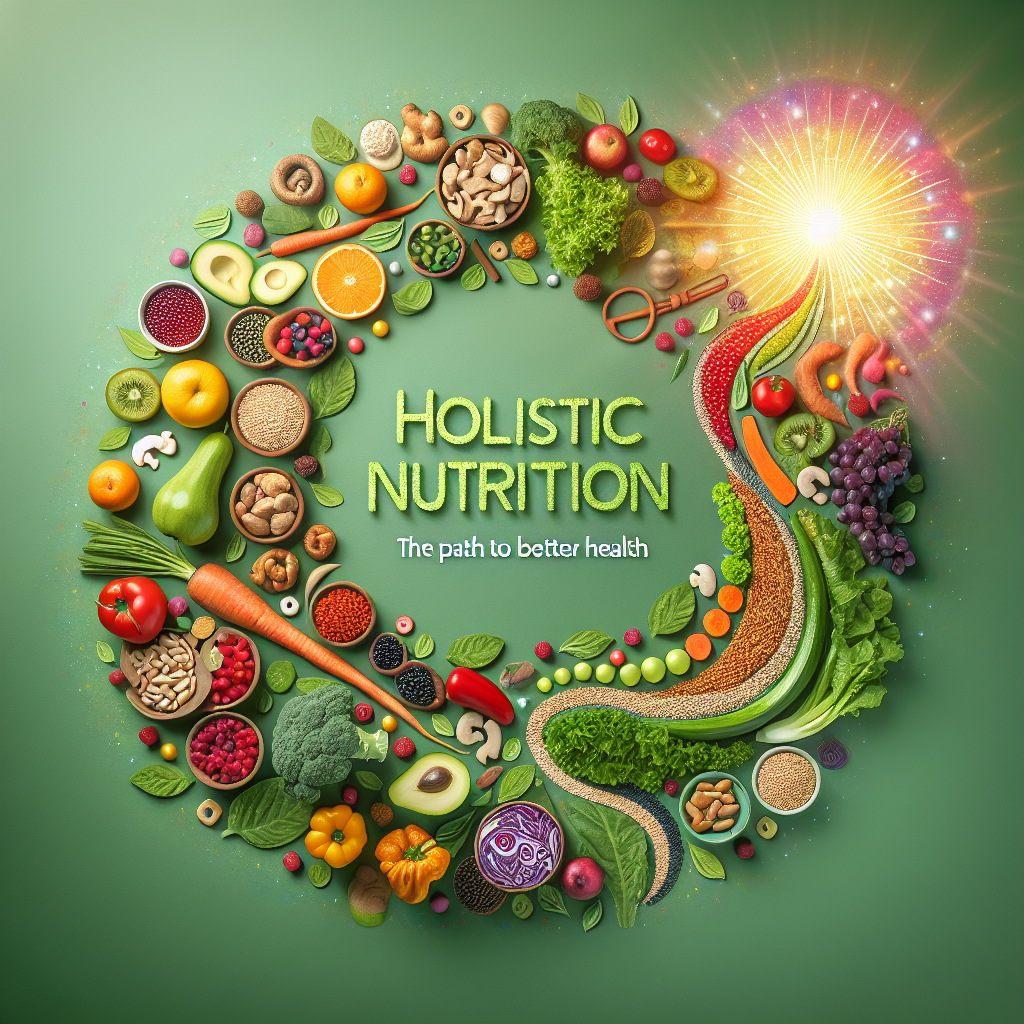As we move into the 20th century, one fact has become clear: the way we eat profoundly affects our overall health and well-being. In fact, a new field known as holistic nutrition emphasizes how important what we consume is to our overall health. Today, more than ever, individuals and health professionals around the world recognize the tremendous value of holistic nutrition as a means to optimal health.
Holistic nutrition is a modern natural approach to health that considers the needs of the individual as a whole, including their physical, emotional and even spiritual well-being. When adopting a holistic diet, it does not focus only on the food consumed, but on how it is grown, prepared and the overall effects it has on our body. It is simply the way to achieve the best health in the most natural and comprehensive way.
Before diving into the specifics, it’s crucial to understand what separates holistic nutrition from conventional nutrition. The first is based on the consumption of whole foods that are the least processed and closest to their natural state. In this way, it promotes the intake of whole grains, organic fruits and vegetables and lean proteins, while reducing health-damaging processed, fatty and sugary foods. In contrast, conventional nutrition is based on “dieting” or cutting calories, which can lead to nutrient deficiencies and, as a result, imbalances in the body.
Part of the magic behind holistic nutrition is the belief that no single diet will work for everyone. Instead, loving guidance for healthier eating and living is encouraged, respecting each individual’s unique needs and desires. This is achieved by recognizing the biochemical uniqueness of each person, taking into account various factors including genetics, environment, emotions and more.
When initially transitioning to a holistic diet, many people fear that they will have to completely uproot their dietary habits, but this is far from the truth. The aim is to make gradual and permanent changes, mainly to include more whole foods in the diet. Replacing refined grains with whole grains, snacking on fruits and vegetables instead of processed foods, and opting for lean and organic meats are simple but effective ways to follow a holistic diet.
Holistic nutrition emphasizes the importance of hydration and its important role in maintaining health. Drinking plenty of water aids digestion, nutrient absorption and detoxification. In addition, consuming nutrient-dense foods helps provide the body with the minerals and vitamins it needs to function properly, while also strengthening the immune system.
Likewise, connecting mind and nutrition is a key aspect of holistic nutrition. Recognizing emotional eating patterns, understanding how stress affects your eating choices, and practicing mindful eating can dramatically improve your eating habits.
Holistic nutrition also promotes the positive effect of physical activity on health. Regular exercise, along with a well-rounded diet, can increase energy levels, reduce stress, improve mood, and help maintain a healthy weight.
In addition to the aesthetic and physical benefits, adopting a comprehensive diet affects many aspects of our health. It helps prevent and control diseases like heart disease, diabetes, obesity and cancer. At the same time, it can also support mental health, helping to overcome problems such as depression, anxiety and chronic fatigue.
With a focus on prevention and the use of food as medicine, holistic nutrition is undoubtedly a path to optimal health. Participating in a healthy, balanced diet not only nourishes our bodies, but also our minds, and promotes overall well-being. Adopting this lifestyle does not require perfection, but progress. So break free from traditional diet rituals and begin your journey to transformative health through holistic nutrition.




